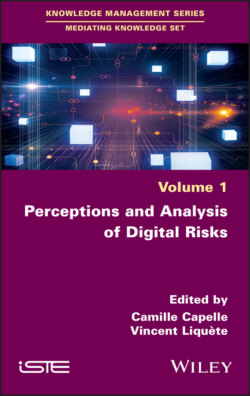Читать книгу Perceptions and Analysis of Digital Risks - Группа авторов - Страница 17
Informational risks
ОглавлениеInformational risks can be very diverse in nature. They can involve the difficulty of knowing the reliability of certain information on the web, due to the proliferation of falsified information (rumors, disinformation) disseminated voluntarily and with the aim of causing harm. The risk of being informed on the Internet is also that of being conditioned by the giants of the Web (GAFAM), who direct individuals according to their profile towards information intended to “correspond” to them. This phenomenon, exposed by the idea of filter bubbles (Pariser 2011), stems from the fact that on the search engines or platforms used, the algorithms that filter and select information can be based on the users’ profile (from their personal data, their search and browsing habits); their network of relationships (i.e. relationships that generate frequent interactions and are considered more influential by users); the popularity of information (popularity based on the number of clicks, retweets on social networks, likes, etc.). The manipulation of information on the Web also manifests itself through “conspiracy theories” (Bronner 2013) that are disseminated in order to generate doubts about certain scientific facts or political powers. In this way, ideologies can be relayed and generate socio-cultural or political conflicts.
